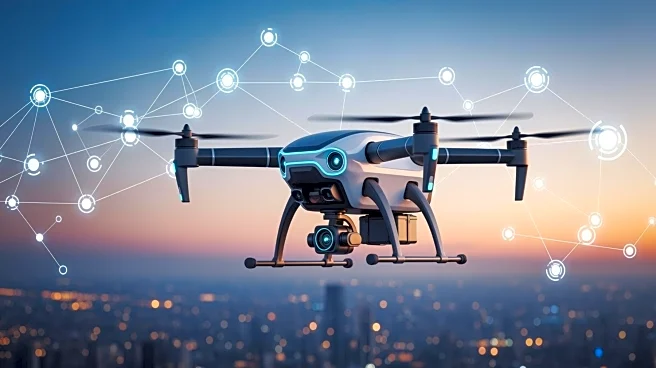What's Happening?
The logistics industry is increasingly focusing on optimizing the first and last mile of shipment lifecycles to better manage supply chain disruptions. These segments are often overlooked but are crucial
for improving efficiency and reliability. The 'landside container black hole' is a significant challenge, where visibility into container movements is lost once they enter domestic transport networks, leading to inefficiencies and unplanned expenses. The industry is shifting towards digital solutions, such as real-time tracking and automation, to enhance operational efficiency and combat these challenges. GPS and IoT-enabled devices are being used to achieve end-to-end visibility, while AI-powered route optimization software helps reduce fuel consumption and delivery times.
Why It's Important?
Improving the first and last mile logistics is vital for the U.S. economy as it directly impacts the efficiency of supply chains. By adopting digital solutions, logistics companies can reduce operational costs and improve service reliability, which is crucial in maintaining competitiveness in the global market. The shift towards automation and integration can lead to better carrier selection and cost management, ultimately benefiting shippers and consumers. As the digital freight forwarding market grows, these advancements will play a key role in ensuring continuity during disruptions, supporting economic resilience and growth.
What's Next?
The logistics industry is expected to continue its shift towards digital solutions, with increased adoption of real-time tracking and automation technologies. Companies will likely invest in AI and IoT to further optimize routes and improve visibility. This trend may lead to more strategic partnerships and alternative routes to ensure supply chain continuity. Stakeholders, including multinational logistics providers, will need to focus on integrating these technologies to enhance efficiency and customer satisfaction.
Beyond the Headlines
The move towards digital solutions in logistics could have broader implications for employment and skill requirements in the industry. As automation becomes more prevalent, there may be a shift in the types of jobs available, with a greater emphasis on tech-savvy roles. Additionally, the increased use of technology could raise concerns about data privacy and cybersecurity, necessitating robust measures to protect sensitive information.









